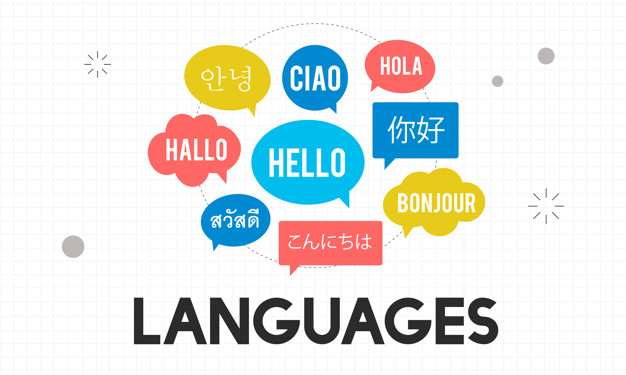You’ve probably heard many reasons why some people don’t learn languages, many of them based on long-standing myths and misconceptions. The truth is that in today’s increasingly interconnected and interdependent world, mastery of other languages is a vital skill that gives you the potential to interact with the world in a more immediate and meaningful way – whether in your neighborhood or thousands of miles away – while better preparing yourself to compete and succeed in the global economy.
These are our top benefits of foreign language learning:
-Connect!
One of the most gratifying aspects of the human journey is our capacity to connect with others. Being able to speak to someone in their language is an incredible gift. Bilinguals have the wonderful opportunity to connect with more people in their private and business lives. Learning the language makes you a local no matter from where you are, opening up your world literally and figuratively. You will be empowered by your communities. You will be humbled by the friendliness of foreigners. You will develop lifelong friendships. And for these reasons alone, you will experience the rewards of learning languages for many years to come.
-Move forward in your career
Language knowledge can be a significant competitive advantage that distinguishes you from your monolingual colleagues. They are ranked among the top eight skills that are required for all occupations, regardless of their sector or skill level, and the demand for bilingual professionals is increasing exponentially. In fact, between 2010 and 2015, the number of job openings in the United States specifically targeting bilingual candidates more than doubled. Employers are looking for professionals who can communicate seamlessly with customers in new and expanding foreign networks, as well as serve and sell to a broad foreign-born audience here at home. With more than 60 million U.S. residents who speak a language other than English at home, they do not have to get on a plane to practice their language skills. Whatever your career aspirations, with language skills added to the mix, you’re ahead of the curve!
-Fuel your brain
The many knowledge benefits of language learning are undeniable. People who speak more than one language have an improved memory, problem solving and critical thinking skills, increased focus, ability to multi-task, and better listening skills. They switch from one task to another and monitor changes in their environment more easily than monolinguals, as well as showing evidence of greater creativity and flexibility. In addition, as we age, being bilingual or multilingual also helps prevent mental aging and cognitive decline.
-Keep your connection with other countries
Language is the most important connection to other cultures. Having the ability to communicate in another language expands and deepens one’s appreciation of the traditions, religions, arts and history of the people associated with that language. Greater understanding, in turn, promotes greater tolerance, empathy and acceptance of others; studies show that children who have studied another language are more open and express more positive attitudes toward the culture associated with that language.
-See the world
Traveling as a local language speaker can transform a trip abroad. While monolingual travelers are able to visit the same places, travelers who know more than one language can more easily navigate out of the tourist bubble and connect and interact with the place and its people in a way that is often inaccessible to those without the language. Studying a second language also opens extra doors to opportunities to study or work abroad.
-Go to the source
In a world of over 6,000 languages spoken, sometimes we need a translation, but speaking at least one additional language allows us to access information that would otherwise be off-limits. For example, people who are fluent in other languages are able to surf the Internet as true global citizens – consuming and evaluating foreign media and entertainment.
-Increase your confidence
Any language learner can attest to making their share of mistakes while discovering a new language, often in front of an audience – a necessary part of the learning process! Learning a language means putting yourself in and out of your comfort zone. The positive side is the incredible sense of accomplishment you will feel when conversing with someone in their native language.

